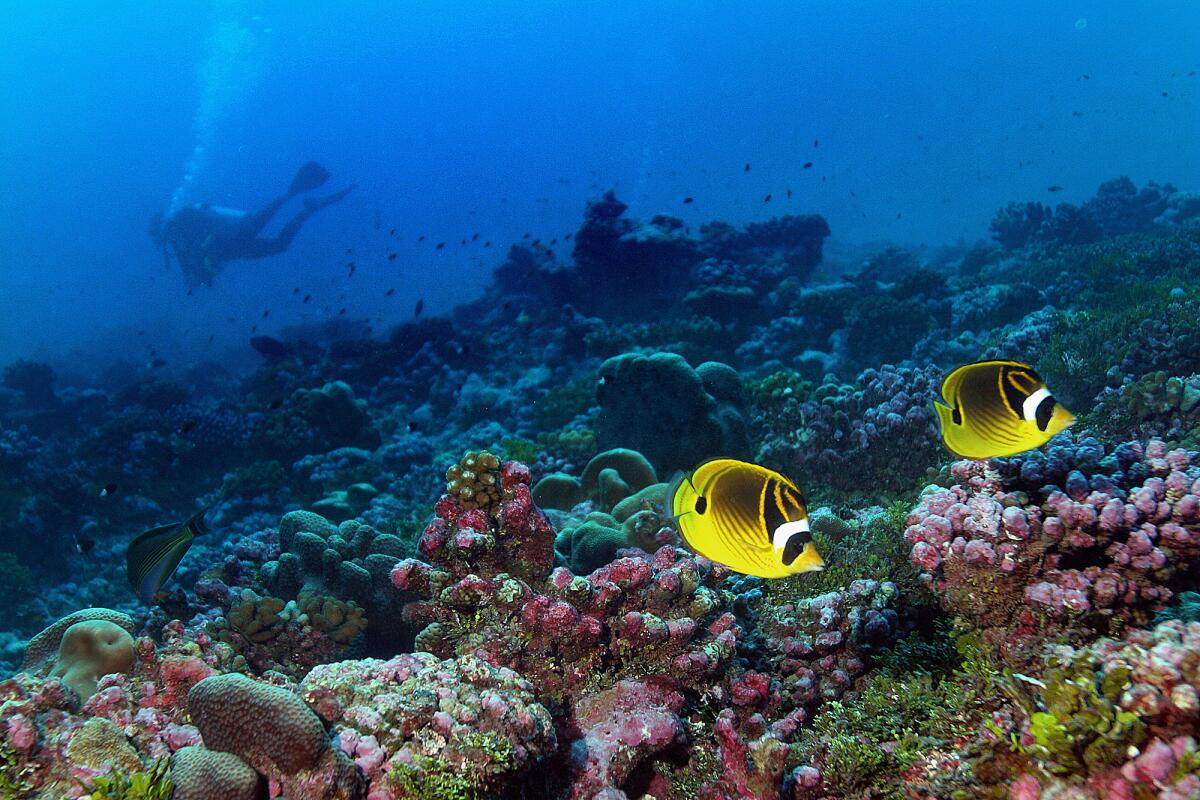Climate change will affect almost every corner of ocean, study says

Seawater is heating up and becoming more acidic, but those are only the first in a cascade of changes the world’s oceans are expected to go through by the end of the century as they respond to greenhouse gas emissions, a new study says.
“The entire world’s ocean surface” will undergo huge changes in ocean chemistry, habitat and biodiversity by 2100 as a result of climate change, with hundreds of millions of people who depend on the sea suffering as a result, the study predicts.
A team of more than two dozen scientists used projections from the Intergovernmental Panel on Climate Change along with biological and socioeconomic data to predict how oceans might be altered by the century’s end. By then, almost no part of the world’s oceans will be untouched by climate change and a suite of related effects, they found.
Oceans will continue to warm and lower in pH while plankton production and dissolved oxygen levels will decline, the study found. A tiny fraction of the ocean’s surface in polar regions could see increases in oxygen and productivity, but practically nowhere will seawater cool or see its pH increase.
Those changing conditions will reduce the growth and size of sea creatures, increase mortality, disrupt ocean food webs and cause species to shift toward the poles and into deeper water, the study found.
Shallow water environments, including coral reefs and seagrass beds, will see more drastic changes than deep-sea habitat, the study predicts. Whales, seals, squid and krill are among the sea creatures projected to experience greater shifts in response to changing ocean chemistry and ecology.
The oceanic changes will affect between 470 million and 870 million poor people who live in coastal areas of countries that rely on the sea for food and jobs and have little ability to adapt, researchers estimated.
The study, published in the journal PLOS Biology, also warned that developing countries will pay most of the environmental and social costs of climate change, which will be compounded by rising sea levels.
“If global CO2 emissions are not reduced, substantial degradation of marine ecosystems and associated human hardships are very likely to occur,” the study concluded.
Twitter: @tonybarboza







